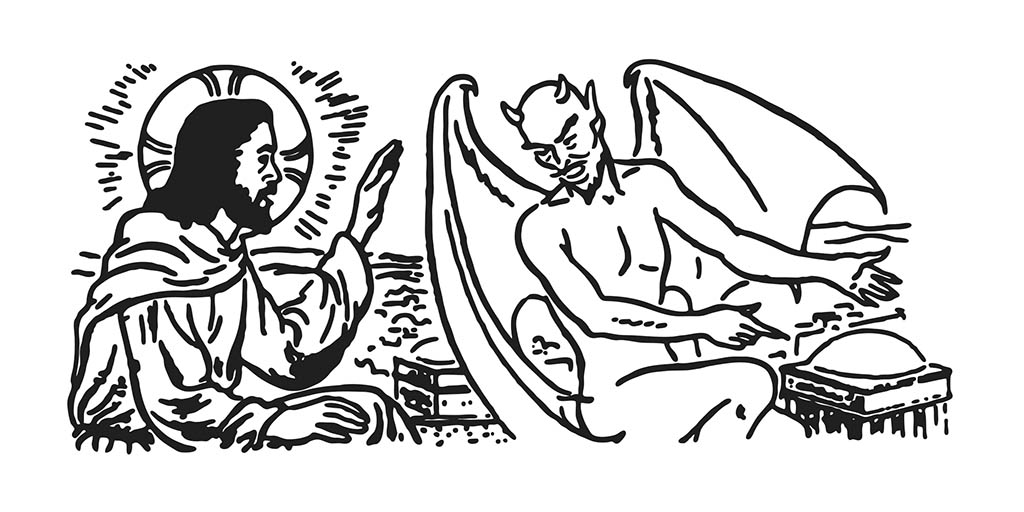The concept of being a sinner
 CREDIT: ISTOCK (CSA-ARCHIVE)
CREDIT: ISTOCK (CSA-ARCHIVE)Sometimes it's best to look back to Jesus' time and see an example of what a sinner can be.
In the book, Gulag, author Anne Applebaum quotes the most famous Russian dissident of all, Alexander Solzhenitsyn. Applebaum and Solzhenitsyn both write about the massive Soviet concentration camp system called the Gulag. They were not exactly the death camps that the Nazis constructed. They were work camps. Nevertheless, they were places of extreme physical and psychological barbarity. Millions, perhaps tens of millions, perished in them from the early through late 1900s.
Inmates struggled to survive. One method of survival was to become what can be called a soft collaborator, a pridurki. In exchange for jobs in the camps that were not the most brutal, one could agree to become an informer. For example, in the logging camps, where death from starvation, exposure and frostbite were the order of the day, you might become a cook and so escape the more lethal aspects of camp life.
Those who agreed to inform didn't necessarily turn anyone in. All such agreements were, of course, made under duress. You might reluctantly say that you would inform on anyone who was planning an escape, but hope that you never ran across such a person, and even if you did, you kept quiet.
Nevertheless, many of those who agreed to report on fellow inmates struggled mightily with their conscience. Solzhenitsyn was one of them.
Why the struggles? Because to become a pridurki meant not only that you might (potentially) report on another inmate. It also meant that you received privileges that others did not. You would work inside a building rather than in the raw cold. You would have access to better bedding, clothing, accommodation and food than your less privileged comrades. You might repair machinery or practice medicine (with or without medical education) instead of dig by hand. And so on.
That meant, of course, that those in the lower levels of the camp hierarchy suffered, and frequently died, doing work from which you were shielded. Complicit in the deaths of other inmates: not a great place to be if you had a conscience.
According to Applebaum, when Solzhenitsyn was asked a second time (in 1956) to become an informer, he flatly refused. Nevertheless, that he once didn't refuse “filled [him] with shame.”
In Jesus' day, the “soft collaborators” as I have called them, were not pridurki. They were not informants, but rather, tax collectors.
With Jesus, 2,000 years ago, they lived under Roman occupation. The Romans ruled by terror, regularly crucifying aspiring leaders of rebellions (which is how Jesus' enemies painted him and managed to engineer his execution), and lesser miscreants. The taxmen in Jesus' day were themselves Jewish, collecting taxes for the Romans.
For that, they were despised. But they drew hatred for a second reason. They were not limited to collecting only the required taxes. They could take more. Thus, many grew wealthy.
For them was reserved the lowest moral category. “Tax collectors and prostitutes,” was a phrase that placed both at the bottom.
Jesus knew such collaborators. One of them was Matthew, also named Levi. “Jesus went out and saw a tax collector by the name of Levi sitting at his tax booth. ‘Follow me,' Jesus said to him. Levi got up, left everything and followed him” (Luke 5).
In the following lines Levi throws a fabulous party for Jesus and invites all his cronies to join. This royally ticked off the righteous (religious) leaders of the town who heaped scorn on Jesus.
I wonder if Levi had meditated on the effects of his collaboration in Israel as Solzhenitsyn did 1900 years later in Siberia.
Likely he was all too aware that his wellstocked pantry meant that little Jewish girls two blocks over were going hungry. Likely he realized that the soft bed on which he slept had been paid for by the excess taxes that were literally beaten out of his distant Jewish cousin on the other side of town. Likely he knew that his wife kept herself with water and lotions while a few streets over the wives of his fellow Jews lived in terror of the club wielding Roman soldiers who enforced his tax regime.
“Why are you partying with tax collaborators and prostitutes?” Jesus' critics demanded.
Jesus replied, “It's not the healthy who need a doctor, but the sick. I have not come to call the righteous to life-change (“repentance”), but sinners.
Meditating on the nasty effects of your sins can have the benefit of making you aware that you need forgiveness and a change of life. Therefore, Jesus gave Levi that for which he hungered.
Editorial opinions or comments expressed in this online edition of Interrobang newspaper reflect the views of the writer and are not those of the Interrobang or the Fanshawe Student Union. The Interrobang is published weekly by the Fanshawe Student Union at 1001 Fanshawe College Blvd., P.O. Box 7005, London, Ontario, N5Y 5R6 and distributed through the Fanshawe College community. Letters to the editor are welcome. All letters are subject to editing and should be emailed. All letters must be accompanied by contact information. Letters can also be submitted online by clicking here.














